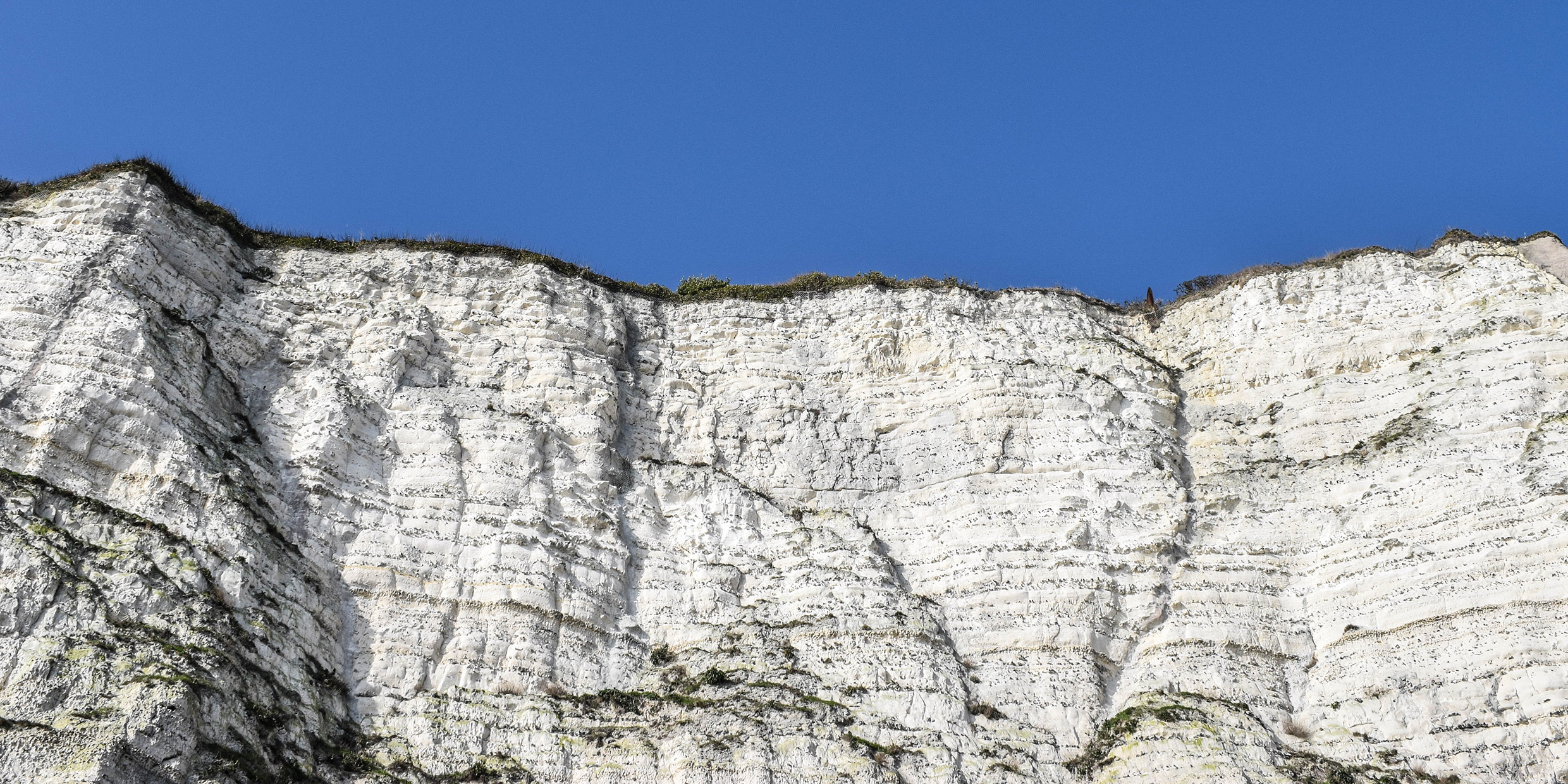Originally published 14 August 2005
When Charles and Emma Darwin bought the house that would be their family home for forty years, at Downe, sixteen miles south of London, one of Charles’ first improvements was to have the flints removed from the property’s chalky meadow.
The glassy stones were more than an agricultural nuisance; they were a puzzle to be solved. The countryside about Downe is pretty much pure chalk, and Darwin was confident he knew where the chalk came from: the calcareous deposits of the myriad planktonic organisms that lived in a sea that was once superincumbent upon the land. But what was the origin of the flints and how did they find their way into the chalk?
Tramp across any plowed field in England’s chalky North or South Downs and these fist-sized nodules of pure, hard, yellow silica are common underfoot. In the white cliffs along the English Channel they can sometimes be seen interspersed in the chalk as dark bands. The flints are chemically very different from chalk, and their presence in the otherwise pure calcium carbonate has long been something of a geological mystery.
Darwin was baffled.
The most plausible modern explanation is that the nodules had their origin in siliceous sponges that grew on the sea floor and other siliceous marine microfossils. When these organisms died, their substance dissolved in sea water and was dispersed within the carbonate ooze, then precipitated out around other organic remains in a process called petrification.
This modern explanation sounds a little iffy to me. I’m no geologist, but if someone asked me where the flints came from, I’d say with Darwin: “I don’t know.”
Those three little words — “I don’t know” — may be modern science’s most important contribution to the world. Yes, we have learned an astonishing amount about how the world works, but of equal significance is our growing awareness of how much we don’t know. The physician/essayist Lewis Thomas wrote: “The greatest of all the accomplishments of twentieth-century science has been the discovery of human ignorance.”
Charles Darwin was certainly not adverse to saying “I don’t know,” and did so frequently in his many letters to family and friends. He was especially ready to confess his ignorance with regard to the big questions, the questions traditionally addressed by religion. Like Einstein and other great scientific minds after him, he was deeply conscious of the profound mystery of existence, and reluctant to cover his ignorance with myth and fable.
In a letter to the American biologist Asa Gray, Darwin wrote: “I am inclined to look at everything as resulting from designed laws, with the details, whether good or bad, left to the working out of what we may call chance. Not that this notion at all satisfies me. I feel most deeply that the whole subject is too profound for the human intellect. A dog might as well speculate on the mind of Newton. Let each man hope and believe what he can.”
The physicist Heinz Pagels might have been describing Charles Darwin when he wrote: “The capacity to tolerate complexity and welcome contradiction, not the need for simplicity and certainty, is the attribute of an explorer. Centuries ago, when some people suspended their search for absolute truth and began instead to ask how things worked, modern science was born. Curiously, it was by abandoning the search for absolute truth that science began to make progress, opening the material universe to human exploration.”
Consciousness of our ignorance is a very modern thing, and an open door to mystery. Darwin counted himself an agnostic, but in his reverence for the creative agency of nature I would count him a devoutly religious man. “There is a grandeur in this view of life,” he famously wrote on the last page of The Origin of Species; the grandeur Darwin spoke of has more of the divine about it than did any Olympian deity.
Today, Darwin’s home has been lovingly restored to what it was in his lifetime, and a visitor can almost feel the spirit of the great man moving through the rooms that once bustled with happy family life. A collection of flints is arrayed on a table in Darwin’s cluttered study, as they might have been when Darwin sat beside them pondering their meaning. Those glassy stones were an adamantine reminder of how rich was the mystery of existence and how little of it he yet understood.



